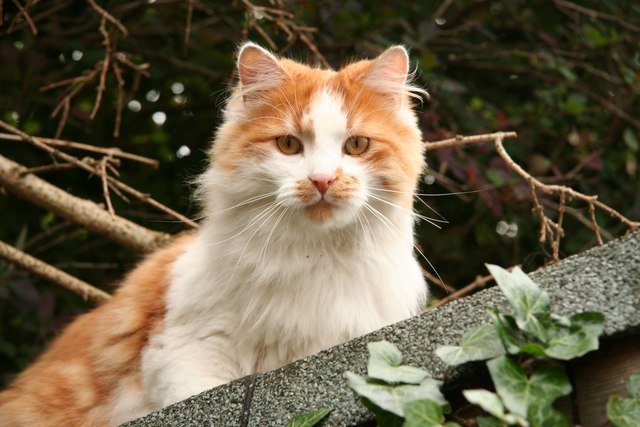Have you ever wondered what goes on in the mind of your feline companion? Cats, often seen as independent and aloof, have a rich emotional life that many of us might not fully appreciate. While their mysterious nature adds to their charm, it also means that their emotional needs can be overlooked. This article delves into the hidden emotional world of cats, revealing ten emotional needs that are rarely discussed. Prepare to be surprised and perhaps even develop a deeper bond with your furry friend!
1. The Need for Consistent Routine
Cats thrive on predictability. A sudden change in their daily routine can be unsettling and lead to stress or anxiety. Much like humans, cats find comfort in knowing what’s going to happen next. Feeding times, play sessions, and even litter box cleaning should follow a consistent schedule. Imagine waking up one day to find your world turned upside down; you’d feel disoriented too. By maintaining a routine, you provide your cat with a sense of security and stability.
2. The Comfort of Safe Spaces
Every cat needs a sanctuary—a place where they can retreat when the world gets too overwhelming. Whether it’s a cozy corner under the bed or a perch by the window, this space is sacred to them. It’s akin to humans needing a quiet room to unwind after a long day. Providing such a space shows your cat that they have a safe haven to escape to, which can significantly reduce stress and promote emotional well-being.
3. The Desire for Mental Stimulation
Cats are naturally curious creatures, and their minds need as much exercise as their bodies. Without mental stimulation, they can become bored, leading to behavioral issues. Toys that challenge their intellect, like puzzle feeders or interactive games, can keep their minds sharp. Picture a detective solving a mystery; that’s your cat when they’re engaged in a mentally stimulating activity. Keeping their brain active ensures a happy and content feline.
4. The Importance of Social Interaction
While cats are often seen as solitary animals, they do crave social interaction, both with humans and other animals. This doesn’t mean they want constant attention, but regular, positive interactions are vital. Think of it as a balance between a social gathering and personal time. Cats enjoy being acknowledged and included in family activities, which can strengthen their bond with their human companions.
5. The Need for Respecting Boundaries
Cats are unique in their need for personal space, and respecting this is crucial for their emotional health. Unlike dogs, who often thrive on physical affection, cats may not always want to be touched or held. It’s essential to recognize their body language and give them space when they need it. Imagine someone invading your personal bubble; it would be uncomfortable. By respecting their boundaries, you build trust and a more harmonious relationship.
6. The Joy of Exploration

Exploration is in a cat’s DNA. They have an innate desire to investigate their surroundings, which can be fulfilled with safe outdoor access or by creating an enriching indoor environment. This drive is similar to a human’s love for travel and discovery. Providing opportunities for exploration satisfies their curiosity and keeps them emotionally fulfilled. Remember, a bored cat is an unhappy cat.
7. The Comfort of Familiar Scents
Cats have a highly developed sense of smell, and familiar scents can provide comfort and reassurance. This is why they often rub their faces against objects or people to mark them with their scent. It’s akin to humans finding comfort in the smell of a loved one’s sweater. By allowing your cat to create a scent map in their environment, you help them feel more secure and at ease.
8. The Need for Playtime
Play is not just a physical activity for cats; it’s an emotional outlet. It allows them to express their natural hunting instincts and relieve stress. Think of playtime as a form of therapy; it’s both fun and beneficial. Regular play sessions can prevent destructive behavior and promote a healthy emotional state. Engaging in play with your cat strengthens your bond and contributes to their overall happiness.
9. The Comfort of a Quiet Environment
Cats are sensitive to loud noises and chaotic environments, which can cause them stress and anxiety. A quiet, calm environment is essential for their emotional well-being. Consider it similar to a human seeking peace and quiet after a hectic day. Providing a tranquil space helps your cat relax and feel secure, reducing the likelihood of stress-related behaviors.
10. The Assurance of Your Presence
Finally, cats need to know that you are there for them. Your presence provides reassurance and comfort, even if they don’t always show it. Much like the comfort a child finds in a parent’s presence, your cat finds solace in knowing you’re nearby. Spending quality time with your cat, even just sitting together, can significantly boost their emotional health and strengthen your bond.
In conclusion, understanding these emotional needs can transform your relationship with your cat. By recognizing and addressing these often-overlooked aspects, you can ensure a happier, healthier life for your feline friend. So, what surprising need did you discover today?

Suhail Ahmed is a passionate digital professional and nature enthusiast with over 8 years of experience in content strategy, SEO, web development, and digital operations. Alongside his freelance journey, Suhail actively contributes to nature and wildlife platforms like Feline Fam, where he channels his curiosity for the Feline into engaging, educational storytelling.
With a strong background in managing digital ecosystems — from ecommerce stores and WordPress websites to social media and automation — Suhail merges technical precision with creative insight. His content reflects a rare balance: SEO-friendly yet deeply human, data-informed yet emotionally resonant.
Driven by a love for discovery and storytelling, Suhail believes in using digital platforms to amplify causes that matter — especially those protecting Earth’s biodiversity and inspiring sustainable living. Whether he’s managing online projects or crafting wildlife content, his goal remains the same: to inform, inspire, and leave a positive digital footprint.





